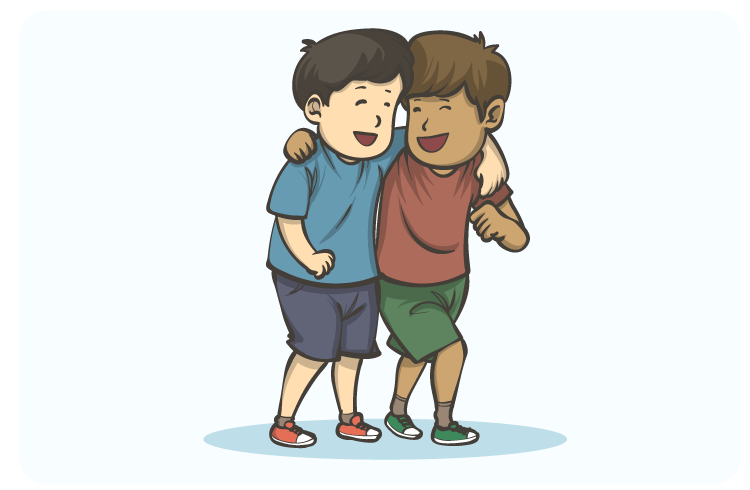How should friends be friends? Who are my ‘real’ friends? Who are my best ... is about sharing. Friends share their lives with each other, sadness or ... alike.

As defined by wikipedia: Friendship is a relationship of mutual affection between people. It is a stronger form of interpersonal bond than an association, and has been studied in academic fields such as communication, sociology, social psychology, anthropology, and philosophy.
Indeed, quality friendships are extremely important to our general happiness. A 2017 study in the journal Personal Relationships found that the presence of strong friendships is actually more indicative of overall health and happiness in old age than even family involvement and support! The benefits of friendship in general, however, are lifelong. Research has shown that people with good friends often feel happier, less stressed and more like they belong than those without. Having a strong network of buddies also increases self-confidence, plus they provide much-needed emotional support during trying times, like illness, loss of a loved one or divorce [source: Mayo Clinic Staff].
In other words, friendship is wonderful, and much ink has been spilled in citing the virtues of having friends. That's not to say friendship is easy, though. It demands time and effort, and it requires that people put someone other than themselves first sometimes. But in exchange for that work, a friend can provide an immense amount of support and comfort in good times and in bad. Keep reading to learn more about the various types of friendship.
How should friends be friends? Who are my ‘real’ friends? Who are my best friends?

Friendship
is about sharing. Friends share their lives with each other, sadness or
happiness alike. Friends share their experiences of their lives, bad or
good alike.
Friendship is about altruism. Take care of your friends as they would take care of you.
Friendship is about forgiving. Accept each other’s negative aspects and mistakes because everyone has them.
Friendship
is about supporting and caring. Be there for them when your friends
need you as they would be there for you when you need them. Support
comes in many ways, but mental support is believed to be the most important.
So ask the same question again. Who really are your friends?
AUTHOR......
......MAE......

No comments:
Post a Comment